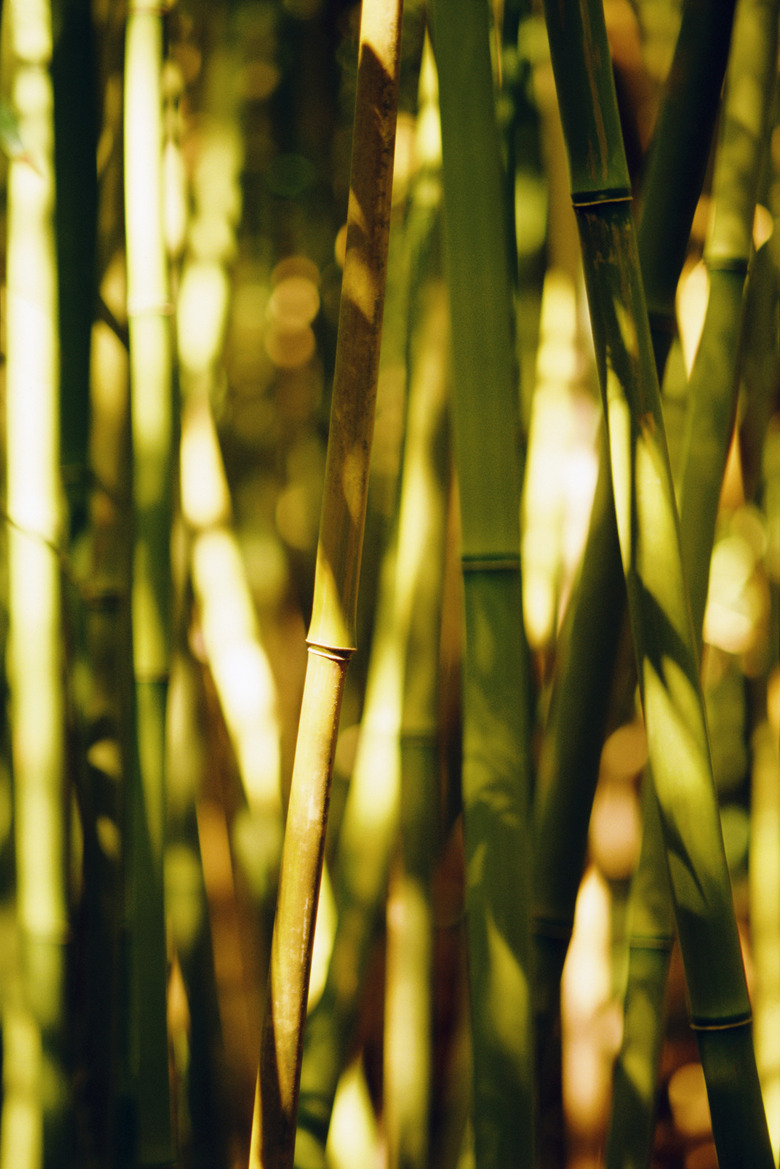How To Get Rid Of Bamboo Rhizomes
Things Needed
- Loppers or other implement suitable for removing bamboo stalks
- Large dark tarp or plastic sheet
- Cinder blocks or other heavy objects
Bamboo spreads and grows quickly, and as such can be very hard to kill. There are two primary types of bamboo — running and clumping — and both are difficult to remove once they've found a foothold in your yard. Frequently, homeowners trying to eradicate the plants will cut down all the stalks, only to find that the rhizomes continually send up new shoots. The only effective way to permanently get rid of bamboo is to kill or remove the rhizomes. Digging up the rhizomes is usually less than effective, since all it takes is one small, remaining piece of rhizome to continue the growth and spread of the bamboo. Herbicides are often likewise ineffective and do not completely kill the rhizome. The best way to kill rhizomes is to deprive them of light and air.
- Bamboo spreads and grows quickly, and as such can be very hard to kill.
- The best way to kill rhizomes is to deprive them of light and air.
Step 1
Use the loppers or other tools to remove the bamboo stalks. For maximum effectiveness, remove the stalks as far down below the soil line as possible. Every stalk should be completely removed.
Step 2
Cover the entire area with a dark tarp or black plastic sheeting. The material should be durable and capable of blocking the sun. If your bamboo is of the running type (indicated by a propensity to spread outside of the main clump), you may want to cover a greater area in order to make sure that the rhizomes have no access to the sun.
Step 3
Place cinder blocks or other heavy objects on the tarp in order to keep it firmly in place. It is best to put most of the blocks on the edges and corners, and one or two in the center as well.
- Use the loppers or other tools to remove the bamboo stalks.
- The material should be durable and capable of blocking the sun.
Step 4
Cut down any stalks that start to grow outside of the area covered by the tarp. Cover the affected area with more plastic sheeting or other material. You may also opt to spray the plant with a brush-killing herbicide, which although not effective against older growth and rhizomes, will successfully kill new growth.
Step 5
Remove the covering once the rhizomes have died off. This will take some time, but once the plant has stopped putting out stalks for several weeks it has most likely perished. Replant the area with whatever replacement plants you desire.
